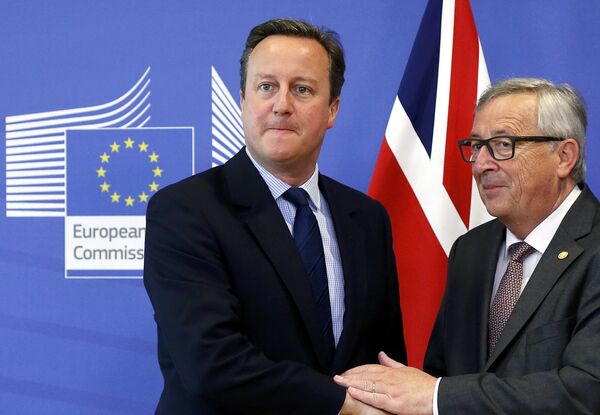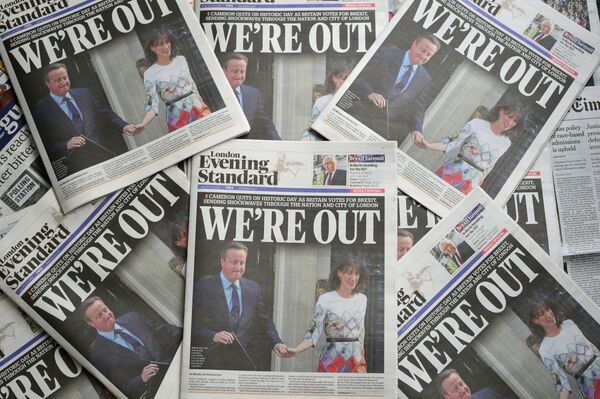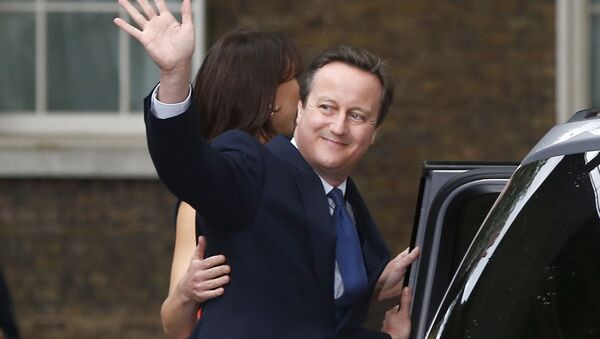"With a heavy heart" David Cameron said he would step down as an MP so that he "would not be a distraction."
Mr. Cameron, said his role as an MP had been an "honor and privilege" and that he was going to continue living locally and contributing to his community "and the country I love so much."
First David Cameron steps down as PM, then he steps down as MP. If he could finish the job by stepping down from a long pier… #getinthesea
— Simon Price (@simon_price01) September 12, 2016
Right decision by David Cameron to leave Commons — former Prime Ministers are either accused of doing too little or being a distraction.
— William Hague (@WilliamJHague) September 12, 2016
So David Cameron is simply running away rather than face the consequences of his actions. I feel annoyed.
— Caron Lindsay (@caronmlindsay) September 12, 2016
Quizzed on his support for new Prime Minister Theresa May, Mr. Cameron said she had his "full support" and Mrs. May had got off to a "cracking start."
Cameron was never in a good place following his decision to call the referendum over the UK's membership of the European Union on June 23, 2016. It was a manifesto pledge in the 2015 general election that he was forced to make after a long-running pro- and anti-EU split within his party as well as the rise of the euroskeptic UK Independent Party (UKIP) led by Nigel Farage.

The huge rise in anti-Brussels sentiment threatened to split his party ahead of the 2015 election, but his fatal flaw was promising to hold a referendum anytime before December 2017, but then calling it early on June 23, 2016. This was his first mistake. He had been advised to call it ahead of the hustings for the French and German elections in 2017.
The narrative went: "If you call it early, German Chancellor Angela Merkel and French President Francois Hollande will not be distracted by their domestic agendas and may give you backing for a campaign to remain in a 'reformed EU.' "
With their backing, he successfully negotiated a package of concessions at the February EU leaders' summit. He won an opt-out from "ever closer union," non-discrimination of non-Eurozone countries and benefits for non-UK EU citizens working in Britain.

He also won favor for winning a limit on benefit payments for non-UK workers until they had been working for four years – the so-called "emergency brake". These benefits included tax credits, housing support and payment of child benefits to children not living in the UK – all of which have cause anger among many euroskeptics in the UK.
However, his greatest failure was "Project Fear" – the campaigning he led, suggesting there would be economic Armageddon if Britain left the EU. He called in the big guns to back his cause. US President Barack Obama – visiting London at the start of the campaign – said the UK would be at the "back of the queue" if it left the EWU and started negotiations on a new trade deal with the US.
It was widely reported that the phrase "back of the queue" had been written in Downing Street as the US president would normally have said "back of the line."
Christine Lagarde, Managing Director of the International Monetary Fund, warned: "We have looked at all the scenarios. We have done our homework and we haven’t found anything positive to say about a Brexit vote."

In the event, Cameron lost and Britain voted by 52 percent to 48 percent to leave the EU. He resigned on the morning of June 24, triggering a leadership election that left Theresa May as the new prime minister of the UK.
Having lost the confidence of the country, Cameron returned to the back benches as a normal member of parliament. However, after a summer break, he has decided to resign from that post as well. He is a rich man and will gain employment elsewhere – as many former politicians do.
In Theresa May's clearout of Cameron's cabinet – getting rid of what many felt were the privileged, rich Oxbridge arms of the Conservative Party – Cameron and his allies were sidelined. In his resignation interview with TV with news outlet ITV, he said:
"In my view, with modern politics, with the circumstances of my resignation, it isn’t really possible to be a proper backbench MP as a former prime minister. I think everything you do will become a big distraction and a big diversion from what the government needs to do for our country."
His resignation may – in his opinion – have been to prevent a "distraction" over his successor's leadership, but some analysts have already suggested it is a snub to May. He told ITV:
"Obviously, I’m going to have my own views about different issues; people would know that."




